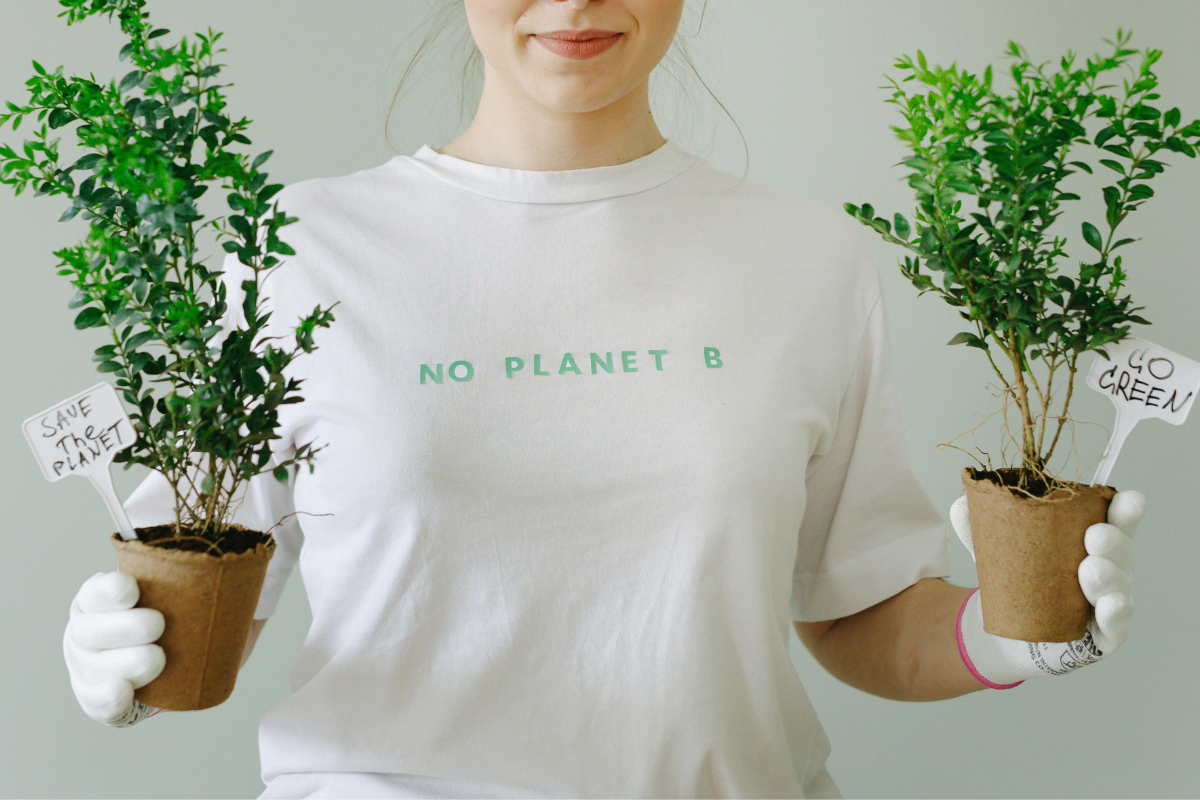Biodegradable, compostable, recyclable: these aren’t just buzzwords and they each mean something different.
With environmental awareness growing every day, you’ve probably noticed the words biodegradable, compostable, and recyclable popping up on product packaging. They sound similar, but each tells a very different story about how our waste is handled and why it matters. Let’s break it down so you can make smarter choices and feel good about how you sort your trash.
Biodegradable: Breaks Down Naturally
A biodegradable product can naturally decompose through the action of microorganisms (bacteria, fungi, enzymes) without leaving toxic substances behind. Examples include food scraps, cotton, or other plant-based products. Over time, these materials break down into carbon dioxide, water, and biomass.
Here’s the catch: biodegradable doesn’t tell you how long it will take. For instance, even plastic can be considered biodegradable because it eventually breaks down in nature… over about 500 years! Because of this, the term can be misleading and is sometimes used more as a marketing tool than a guarantee.
So, what’s the best way to deal with biodegradable items? Try to avoid putting them in the recycling bin unless the packaging clearly says it’s okay, since they could mix with other recyclables. It’s also best not to toss them into nature since biodegradable materials can stick around for years and might release microplastics along the way. If you can, composting is a great option, especially when the packaging mentions it. And if you’re ever unsure, toss the item in the regular trash to play it safe.

Compostable: Biodegradable, But More Controlled
Compostable items are a special kind of biodegradable product. They break down naturally, but they do best under certain conditions like the right temperature, humidity, and oxygen. Tiny microbes get to work turning them into rich organic matter called “humus,” which acts as a natural fertilizer, enriches the soil, improves its structure, and supports a thriving community of microbes. Unlike regular decomposition, composting creates something useful without leaving behind toxic residues, so long as the material is sorted properly and ends up in the right compost bin, whether at home or in an industrial facility.
Compostable materials generally fall into three categories:
-
Food scraps, plant- or animal-based
-
Green waste, like dead leaves, grass clippings, or small branches
-
Soiled fibres, such as heavily stained or wet paper and cardboard that can’t be recycled, but are suitable for composting
For compost to break down properly, it needs a little attention—turning the pile helps add oxygen, which is exactly what the microbes need to do their work. Landfills, on the other hand, are closed-off and low in oxygen, so composting just can’t happen there. That’s why it’s best to keep compostable items out of the regular trash. They do their best work when they’re composted!
Recyclable: Giving Materials a Second Life
A recyclable item is a material that can be collected, sorted, and transformed into something new. Instead of being destroyed, it gets a second chance at life! Unlike composting, which focuses on organic matter, recycling is mostly inorganic waste like plastics, paper, metals, cardboard, and glass.
Rather than ending up in a landfill, these materials are recovered, processed, and reintroduced into production, often as something entirely different. For example, an aluminum can might become a brand-new can, while a plastic bottle could be turned into a cozy polyester sweater.
But here’s an important tip: recyclable doesn’t automatically mean recycled. For something to actually make it through the recycling process, it needs to:
-
Be sorted properly by you, the consumer
-
Be clean and free of residue
-
Match the processing capabilities of your local recycling facilities
By keeping these tips in mind, you’re helping materials stay out of the landfill and be used again in a meaningful way!

What About Iris + Arlo Products?
At Iris + Arlo, every aspect of our products is designed to minimize environmental impact without compromising comfort and protection. Unlike traditional disposable products that can linger for centuries, Iris + Arlo items break down much faster, leaving less impact on the environment.
Our tampons come with biodegradable and recyclable wrappers and are packaged in recyclable cardboard boxes. Our pads are wrapped in a fully compostable biofilm wrapper and feature a biodegradable, compostable, and waterproof nappy layer. Our pantyliners are also made from 100% organic cotton and biodegradable, compostable materials, with a compostable biofilm wrapper for packaging. Even our resealable bags are recyclable, making it easier to dispose of packaging responsibly.
Not to mention, all of our menstrual products are made from 100% GOTS-certified organic cotton, biodegradable in about 150 days and compostable in home or industrial composting facilities where available. Every detail is thoughtfully chosen to reduce waste while providing the comfort and protection you can count on.
Conclusion
Biodegradable, compostable, recyclable: these aren’t just buzzwords, and they each mean something different. Taking a moment to read labels, understand certifications, and follow your local sorting guidelines can make a real difference. By choosing Iris + Arlo, you’re opting for products and packaging that are thoughtfully designed to break down quickly and responsibly, whether through composting or recycling — helping the planet with every cycle.




